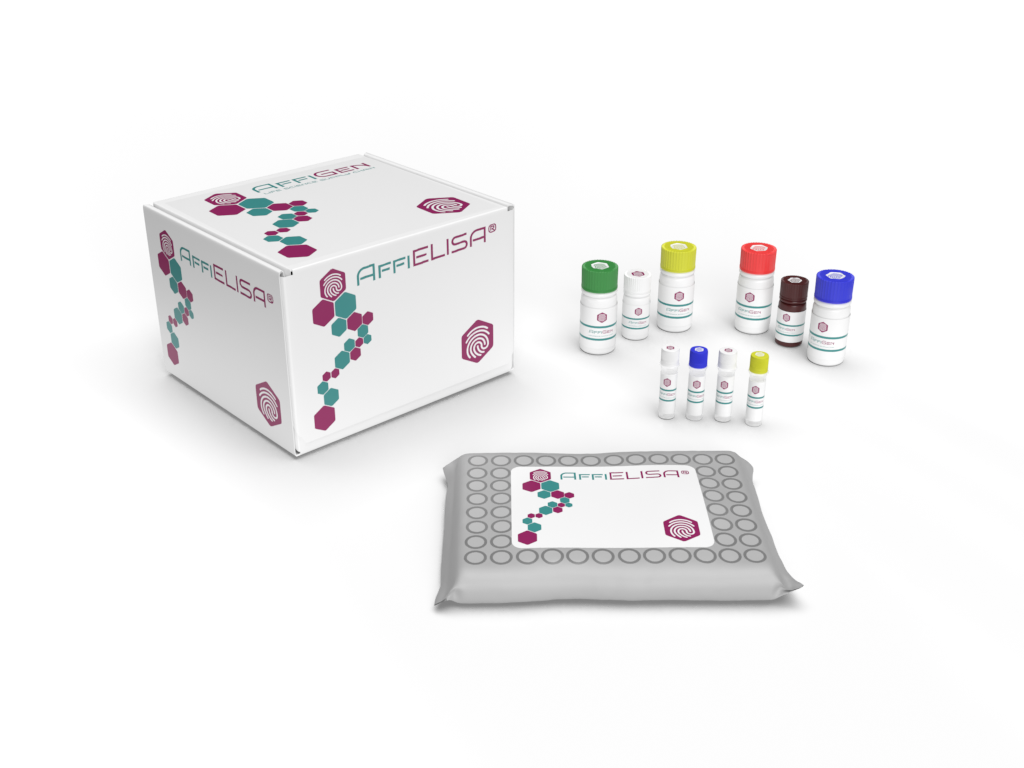AffiELISA® Bovine Plasminogen Activator Inhibitor 1 | PAI1 | ELISA Kit
Bovine Plasminogen Activator Inhibitor 1 (PAI-1) is an essential protein involved in regulating the fibrinolytic system, responsible for controlling blood clot dissolution. In bovines, PAI-1 plays a significant role in modulating the balance between clot formation and dissolution by inhibiting tissue plasminogen activator (tPA) and urokinase plasminogen activator (uPA), key enzymes involved in fibrinolysis.
The AffiELISA® Bovine PAI-1 ELISA Kit is designed to detect and quantify the concentration of PAI-1 in bovine biological samples. This assay utilizes specific antibodies that bind to PAI-1, allowing for accurate measurement of its levels. Researchers in veterinary medicine and related fields use this ELISA kit to study PAI-1 levels in bovine samples, contributing to research on coagulation disorders, cardiovascular health, and various physiological processes affected by the fibrinolytic system in cattle.
Understanding the dynamics of PAI-1 in bovines is crucial for comprehending blood clotting mechanisms, identifying potential implications in diseases related to clotting disorders or cardiovascular health in cattle, and exploring therapeutic interventions to address such conditions.
Product Specifications
Species
Bovine
Gene / Target
PAI1
Assay Type
Sandwich ELISA
Assay Length
3-4 hours
Bovine Plasminogen Activator Inhibitor 1 Background
Plasminogen Activator Inhibitor 1 (PAI-1) is a protein involved in the regulation of the fibrinolytic system, which controls the breakdown of blood clots. Its primary function is to inhibit tissue plasminogen activator (tPA) and urokinase, which are enzymes responsible for converting plasminogen into plasmin, a key enzyme that dissolves blood clots.
PAI-1 plays a crucial role in maintaining the balance between clot formation and clot dissolution. Elevated levels of PAI-1 can contribute to an increased risk of thrombosis (formation of blood clots), as it inhibits the breakdown of clots, leading to their persistence. On the other hand, low levels of PAI-1 may result in excessive bleeding due to an inability to form stable blood clots.
Changes in PAI-1 levels have been associated with various medical conditions, including cardiovascular diseases, thrombotic disorders, and even metabolic conditions such as obesity and insulin resistance. Monitoring PAI-1 levels can sometimes provide insights into a person's risk for certain cardiovascular or clotting-related disorders.
